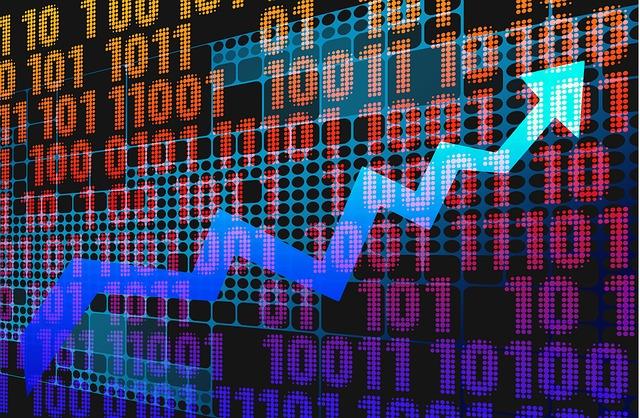jumping into the world of economics can feel a little like trying to learn a new language—it’s full of weird terms, tricky concepts, and a lot of numbers flying around.But don’t worry! Whether you’re just curious about how money moves around or want to make smarter financial decisions, understanding the basics of the economy is a game-changer. In this simple starter guide, we’ll break down the essentials into easy-to-grasp bites, no economics degree required. Let’s demystify the economy together and get you feeling confident about all things money and markets!
Understanding How Money Moves Around in the Economy
Money in an economy isn’t just paper bills and coins sitting in your wallet—it’s constantly on the move, flowing through various channels that keep everything ticking.Think of it like a game of tag, were money is the “it” running from one player to another, encouraging trade, investment, and growth. At the center of this game are households, businesses, and the government. Households earn money by working, businesses use capital to produce goods and services, and the government collects taxes and redistributes funds to support infrastructure and public programs.
Here’s a quick look at the main pathways where money circulates:
- Consumer spending: The money you spend on groceries, clothes, and gadgets flows directly to businesses, helping them grow and pay wages.
- Investment: Businesses use money from banks and investors to build factories or develop products, which creates jobs and fuels innovation.
- Government spending: Taxes collected are pumped back into the economy through public services,salaries for government workers,and social benefits.
- Savings and loans: Money saved by households is borrowed by businesses,helping to fuel expansion and new projects.
| Flow Type | Who Sends | Who Receives | Purpose |
|---|---|---|---|
| Consumer Spending | Households | Businesses | Buy goods & services |
| Investment | Investors & Banks | Businesses | Expand production |
| Taxes | Households & Businesses | Government | Fund public services |
| Government Spending | Government | Households & Businesses | Support economy |

Breaking Down Key economic Terms Without the Jargon
Understanding the economy might seem like decoding a secret language, but it doesn’t have to be that way. Let’s start with some basic terms you’ll hear everywhere. GDP sounds fancy, but it’s just the total value of all goods and services a country produces — think of it as the nation’s report card on how much stuff it’s making. Then there’s inflation, which is just a word for prices going up over time; when inflation is high, your money doesn’t buy as much as it used to. Supply and demand is another one: it’s all about how much of something is available (supply) versus how many people want it (demand). When demand > supply, prices usually go up!
Here’s a quick cheat sheet to keep these basic terms straight:
| Term | What It Means | Why It Matters |
|---|---|---|
| GDP | All goods & services produced nationwide | Shows economic health |
| Inflation | Rising prices over time | Affects buying power |
| Supply & Demand | How much is available vs. wanted | Influences prices |
| Interest Rate | Cost of borrowing money | Impacts loans & saving |
| Unemployment Rate | % of people without jobs | Indicates job market health |
Don’t worry if these terms seem a bit much at first. Think of them as tools — once you get pleasant, you’ll start spotting how they come up everywhere, from news headlines to everyday conversations. Keep this list handy, and you’ll sound like a pro in no time!
Smart Spending and saving Tips to Kickstart Your Financial Journey
Starting your financial journey doesn’t have to feel like rocket science. The trick is to get smart about how you spend and save right from the get-go. Focus on tracking your expenses—know where every dollar goes so you can spot what you really need versus what’s just a habit. Embrace budgeting tools or simple apps that make this easy and even a bit fun. Also, don’t underestimate the power of small savings. Cutting out a daily coffee or avoiding impulse buys can add up more than you think and build a solid cushion for those unexpected moments.
Another game-changer is setting clear,realistic goals that match your lifestyle. Whether you’re aiming for a rainy-day fund or saving towards a trip, breaking your goals into achievable chunks keeps motivation high and your progress visible.Here’s a quick cheat sheet to get you started:
| Tip | Example | Why It works |
|---|---|---|
| Automate Savings | Set $50 monthly auto-transfer to savings | Makes saving effortless and consistent |
| Use Cash Envelopes | Limit dining out money to $100/month | Controls overspending by physical limits |
| Prioritize Needs Over Wants | Buy groceries before entertainment splurges | Builds good spending habits early on |
How Interest Rates Affect Your Wallet and What You Can Do About It
Interest rates are like the invisible puppeteers of your finances. When rates go up, borrowing money gets more expensive—think higher credit card bills, pricier car loans, and bigger mortgage payments. On the flip side, saving becomes more rewarding as banks pay you more to keep your money with them. But when rates drop, borrowing cheapens, giving you an opportunity to snag lower interest on loans, while saving yields take a hit. Understanding this push and pull helps you decide when to borrow, save, or invest in your personal money game.
Here are some smart moves to keep your wallet happy:
- Refinance your loans when rates drop to save on interest payments
- Build an emergency fund while rates are low, so you’re not forced to borrow at high cost
- Shop for credit cards with low or 0% introductory rates during low-rate periods
- Consider locking in fixed rates when you expect them to climb, especially on big purchases
| Scenario | Effect on Borrowing | effect on Saving |
|---|---|---|
| Interest Rates Rise | Loans become more expensive | Savings grow faster |
| Interest Rates Fall | Loans become cheaper | Savings earn less |
Easy Ways to Keep Up with Economic News Without Feeling Overwhelmed
Keeping track of economic news doesn’t have to be a full-time job or cause a headache. Start by picking a couple of trustworthy sources that explain things in simple terms—think financial podcasts,short video summaries,or bullet-point newsletters you can skim in a few minutes. Setting aside just 10 minutes a day to catch up ensures you stay informed without getting buried in jargon or lengthy articles. Also, using apps with customizable news feeds lets you filter topics that really matter to you, like jobs, markets, or government policies, so you’re not overwhelmed by everything at once.
Another handy trick is to keep a quick-reference chart or list handy. This can help decode complex economic terms or current events at a glance, turning confusion into clarity.Check out this simple cheat sheet that breaks down common economic concepts and their real-world impact:
| Term | what It Means | Why It Matters |
|---|---|---|
| Inflation | Prices rising over time | Impacts cost of living and savings |
| GDP | Total economic output | Shows how healthy the economy is |
| Interest Rates | Cost of borrowing money | Affects loans,mortgages,and spending |
By combining bite-sized daily updates with handy tools,you can stay on top of the economy without feeling lost or overwhelmed. trust your pace and keep things simple—being in the know is easier when you break it down into manageable pieces!
Q&A
Economy Basics for Newbies: Your Simple Starter Guide – Q&A
Q: What exactly is the economy?
A: Think of the economy as the big system where all the buying, selling, producing, and trading happens. It’s basically how money moves around between people, businesses, and the government. When you buy a coffee or someone builds a new house, that’s all part of the economy in action!
Q: Why should I even care about the economy?
A: Good question! The economy affects your daily life more than you might realize—your job, how much things cost, your savings, and even government services all depend on it. Understanding the basics can help you make smarter money decisions and be less stressed about financial news.
Q: What’s GDP, and why do people always talk about it?
A: GDP stands for Gross Domestic Product. It’s like the economy’s report card—showing the total value of all goods and services made in a country during a specific time. If GDP is growing,it usually means the economy is doing well; if it’s shrinking,things might be tougher.Q: What’s inflation? And should I worry about it?
A: Inflation is when prices for stuff go up over time. Imagine your favorite snack costing $1 today and $1.10 next year. That’s inflation! A little inflation is normal, but too much can make life more expensive and can hurt your purchasing power.
Q: How do interest rates fit into all this?
A: Interest rates are like the cost of borrowing money or the reward for saving it. When rates are low, borrowing is cheaper (great for loans), but saving earns you less. When rates are high,borrowing costs more,but you can earn more from your savings. Central banks adjust these rates to keep the economy balanced.
Q: What’s a recession, and should I be scared of one?
A: A recession is when the economy shrinks for a while, usually meaning businesses slow down, and people might lose jobs. It’s not great, but it’s a normal part of the economic cycle. Knowing about it can definitely help you prepare financially, like saving more or avoiding risky spending.
Q: How do governments influence the economy?
A: Governments can spend money, collect taxes, and set rules that affect how businesses and consumers behave.They might invest in roads, schools, or help people who lose jobs.Policies like tax cuts or stimulus checks can boost the economy when it needs a push.
Q: What’s the difference between the stock market and the economy?
A: The stock market is where people buy and sell shares of companies. It’s kind of like the economy’s “pop quiz”—it reacts quickly to news and moods but doesn’t always show the bigger economic picture. The economy is broader, covering all goods, services, jobs, and money moving in a country.
Q: any quick tips for newbies to get started learning more about the economy?
A: Definitely! Start small: read simple news summaries, watch videos that break down economic concepts, and maybe follow a couple of easy-to-understand finance blogs or podcasts. Over time, things will click, and you’ll feel way more confident!
Hope this Q&A clears up some of the mystery around the economy and makes you feel ready to dive deeper.Remember, everyone starts somewhere, and getting these basics down is the first step to becoming money-savvy!
Key Takeaways
And that’s a wrap on your quick dive into the basics of the economy! Hopefully, this guide made those big, confusing terms a little less scary and a bit more understandable. Remember, you don’t have to be an expert overnight—just taking these first steps puts you ahead of the game. Keep asking questions, stay curious, and watch how the economy starts making a lot more sense in your daily life.Until next time, happy learning and here’s to smarter money moves ahead!











